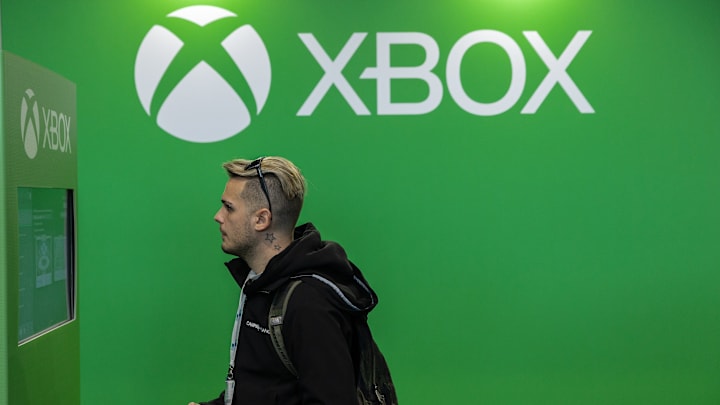As the gaming industry undergoes digital transformation, recent reports suggest a shift in the retail landscape for Xbox games in Europe. GamesIndustry.biz's recent Microcast episode featured insights from Chris Dring, where he disclosed information from a major publisher indicating that "several retailers" in Europe have stopped listing and stocking Xbox games due to low physical sales.
Dring explained that these retailers have chosen not to carry Xbox discs anymore, citing Xbox's increasing reliance on digital distribution. With the majority of players opting for digital downloads, the physical performance of Xbox games has reportedly dwindled, making it less beneficial for retailers. Dring also noted that selling consoles where most games are digitally downloaded doesn't offer retailers significant benefits, as the margins on hardware are often narrow.
While Dring couldn't confirm the specific retailers involved, the information came from a high-ranking European publishing executive. The evolving landscape raises questions about the future of physical game sales, especially for consoles like Xbox, which are becoming increasingly digital-centric.
As Microsoft continues to embrace digital strategies and with rumors of a discless version of the Xbox Series X in the works, the industry may witness a reduction in the availability of boxed Xbox games. As gaming habits shift towards digital platforms, this reported move by European retailers reflects broader trends in the industry. The implications of this shift highlight the challenges and adjustments traditional retailers may face as gaming continues to evolve into a predominantly digital ecosystem.
Kotaku has reached out to Microsoft for comments on these reported changes in European retail trends for Xbox games. As the industry grapples with the implications of such shifts, it remains to be seen how this digital evolution will shape the future of game distribution and retail partnerships.
This potential change in the retail landscape for Xbox games aligns with broader trends in the gaming industry. Digital distribution has been on the rise, driven by the convenience and accessibility of downloading games directly to consoles. Major gaming platforms, including Xbox, have been emphasizing digital storefronts and subscription services.
The reported decision by European retailers to stop listing and stocking Xbox games is indicative of the industry's ongoing transition toward a digital-first model. While physical copies of games have been a longstanding tradition, the shift to digital distribution offers benefits such as instant access, reduced production costs, and the ability to reach a global audience without the constraints of physical manufacturing and distribution.
For retailers, especially those facing narrow profit margins on hardware sales, adapting to the changing landscape becomes crucial. The decision to prioritize digital offerings over physical discs aligns with the evolving preferences of gamers who seek seamless experiences and the convenience of downloading games directly to their consoles.
Microsoft's strategy, including potential plans to release a discless version of the Xbox Series X, further underscores the company's commitment to a digital future. The reported move by European retailers may signal a broader trend wherein physical game sales become a niche market, with digital downloads dominating the mainstream gaming landscape.
As the industry navigates these shifts, discussions around the future of physical game distribution, the role of retail partners, and the impact on gamers' purchasing habits will likely continue. Microsoft's response to these reported changes and the industry's overall adaptation to digital transformation will shape the landscape of gaming in the years to come.
While this shift may streamline the distribution process and cater to the growing demand for digital content, it also raises questions about the future of physical game preservation and the impact on consumers who prefer tangible copies of their favorite titles. For many gamers, collecting physical editions has been a cherished aspect of the hobby, and a move away from physical game sales may limit their options.
The reported decision by some retailers to cease stocking Xbox games reflects a broader transformation within the gaming industry. Microsoft's focus on digital distribution aligns with changing consumer behaviors and preferences, emphasizing the role of online storefronts and subscription services in delivering content directly to players.
As the industry continues to evolve, conversations about the consequences of a digital-centric approach, potential implications for brick-and-mortar game stores, and the balance between digital and physical gaming experiences will become increasingly relevant. The reported trend in European retailers may be an early indication of a broader global shift, prompting discussions about the future landscape of game retail and the role of physical copies in an industry that is rapidly embracing digital innovations.
Ultimately, the impact of these changes will extend beyond retail strategies to shape the overall gaming experience for consumers. The industry's ability to navigate this transition while considering the diverse preferences of its audience will play a crucial role in determining the trajectory of gaming in the years to come.
